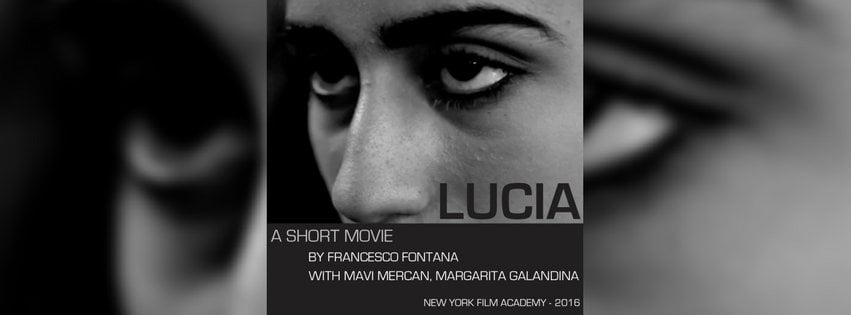
Lucia mourns in front of a cross, possibly a grave (of her beloved one, as the director himself says). She is never going to see him again. Because of her intense sadness she plucks her eyes in front of the cross and falls unconscious. During these moments she will meet a mysterious woman.
Francesco Fontana’s film ‘Lucia’ is shot in black and white with high contrasts and using great lighting that indicates much importance is given to cinematography. The visuals successfully contribute to both the aesthetics and the mood of the film and to its tangential religious tint.










